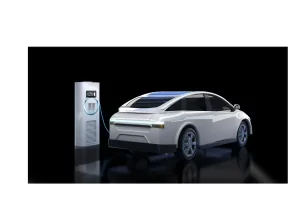Driving Green into Your Vehicle Care
The automotive industry is undergoing a significant transformation as electric vehicles (EVs) gain popularity, driven by a collective desire for cleaner transportation options. With the urgency of climate change, the move towards electric mobility represents a crucial step in reducing greenhouse gas emissions and lessening our dependency on fossil fuels. However, the journey doesn’t end once you purchase an EV; maintaining it sustainably is equally important. This article explores various sustainable practices for EV maintenance, emphasizing the need for environmentally friendly approaches throughout the vehicle’s life cycle.
Understanding the Environmental Impact of EVs
While EVs are often lauded for their potential to reduce emissions, it’s essential to recognize the broader environmental impact associated with their production and maintenance. The lifecycle of an EV—from raw material extraction to manufacturing, operation, and eventual disposal—presents unique challenges.
- Manufacturing Emissions: The production of electric vehicle batteries, particularly lithium-ion batteries, involves mining for materials like lithium, cobalt, and nickel, which can lead to significant environmental degradation and carbon emissions. Moreover, the energy-intensive processes involved in battery production often rely on non-renewable energy sources.
- Operational Efficiency: When in use, EVs generate zero tailpipe emissions, a significant advantage over traditional gasoline vehicles. However, the source of electricity used for charging plays a critical role in determining the overall environmental impact. Regions relying heavily on coal for electricity generation may still have a considerable carbon footprint associated with EV use.
- Maintenance and Sustainability: Maintaining your EV sustainably not only prolongs its life but also minimizes the ecological footprint. Simple practices can contribute to a more sustainable ownership experience.
Eco-Friendly Charging Practices
Charging your EV is one of the most significant aspects of ownership, and adopting sustainable practices here can make a notable difference.
- Optimal Charging Times: To reduce the overall demand on the grid, consider charging during off-peak hours. Many utility companies offer lower rates during these times, which can also save you money. Off-peak hours often coincide with higher renewable energy production, particularly at night.
- Utilizing Renewable Energy: If possible, consider installing solar panels at your home. By harnessing solar energy to charge your EV, you can drastically reduce your carbon footprint. Some EV owners even create a closed-loop system where the energy produced by their solar panels directly powers their vehicle.
- Smart Charging Solutions: Invest in smart charging stations that optimize energy consumption based on grid demand. These devices can automatically adjust the charging speed and time based on energy availability, further reducing energy waste.
- Public Charging Stations: When using public charging stations, opt for those powered by renewable energy. Many charging networks are now disclosing their energy sources, allowing you to make informed choices.
Sustainable Battery Care
The battery is the heart of any electric vehicle, and its maintenance is crucial not only for performance but also for sustainability.
- Importance of Proper Maintenance: Regularly check your battery health using the vehicle’s diagnostic tools or through professional services. Keeping the battery in optimal condition extends its lifespan, which ultimately reduces the environmental impact associated with battery production.
- Temperature Management: Batteries operate most efficiently within a specific temperature range. Extreme heat or cold can degrade battery performance. Whenever possible, park your EV in a garage or shaded area to mitigate temperature extremes. Additionally, pre-conditioning your vehicle while it’s still plugged in can help maintain battery health without draining it.
- Recycling and Repurposing Batteries: When your battery reaches the end of its life, don’t dispose of it in regular waste. Many manufacturers and retailers offer battery recycling programs. Some batteries can be repurposed for energy storage systems in homes, providing a second life to the materials and minimizing waste.
- Monitoring Charge Levels: To prolong battery life, avoid letting your battery drop below 20% or charging it to 100% regularly. Many experts recommend keeping the charge between 20% and 80% for day-to-day driving.
Choosing Sustainable Replacement Parts
As with any vehicle, your EV will require occasional replacements and repairs. Choosing sustainable options can make a difference.
- Importance of Eco-Friendly Materials: When selecting replacement parts, look for manufacturers that prioritize sustainability. Eco-friendly materials can include recycled metals and plastics, which significantly reduce the environmental impact of production.
- Sourcing Parts: Consider sourcing parts from local suppliers to minimize transportation emissions. Many online retailers now offer eco-friendly parts, and some even focus exclusively on sustainable automotive solutions.
- Manufacturer Policies: Research companies that have clear sustainability policies and practices. Brands that use renewable energy in their production processes or are committed to reducing their overall carbon footprint can help you maintain a greener vehicle.
- Second-Hand Parts: Consider using second-hand or refurbished parts when possible. This not only saves money but also contributes to reducing waste and the demand for new materials.
Green Cleaning Practices
Maintaining the cleanliness of your EV doesn’t have to come at the expense of the environment.
- Eco-Friendly Cleaning Products: Opt for biodegradable and non-toxic cleaning supplies. Many companies now offer eco-friendly car care products that are effective and safe for both the environment and your vehicle’s surfaces.
- Water Conservation: Reduce water usage during car washes by using waterless cleaning products or opting for a professional eco-friendly car wash that recycles water. This practice is particularly beneficial in areas prone to drought.
- Proper Disposal: Ensure that any cleaning materials, such as rags and containers, are disposed of or recycled correctly. Avoid washing hazardous materials down the drain, as they can harm local water supplies and ecosystems.
- Interior Maintenance: Regularly clean the interior with non-toxic products. A clean environment not only enhances your driving experience but also reduces the risk of harmful substances accumulating over time.
Regular Maintenance for Efficiency
Regular maintenance is key to ensuring your EV operates at peak efficiency, contributing to its sustainability.
- Scheduled Check-Ups: Stick to the manufacturer’s recommended maintenance schedule. Regular check-ups help identify potential issues before they become significant problems, reducing the need for major repairs and the waste associated with them.
- DIY Maintenance Tips: Simple tasks like checking tire pressure, cleaning filters, and replacing wiper blades can often be done at home with minimal tools. Keeping tires properly inflated not only improves safety but also enhances energy efficiency.
- Choosing Eco-Conscious Service Providers: When taking your EV for service, look for garages that prioritize sustainable practices. This can include using eco-friendly products, recycling old parts, and employing energy-efficient practices in their operations.
- Staying Informed: Keep yourself updated on the latest advancements in EV maintenance. Online forums, workshops, and manufacturer resources often share valuable tips on extending the life of your vehicle sustainably.
Engaging with the EV Community
One of the best ways to enhance your knowledge and commitment to sustainable practices is by engaging with the EV community.
- Joining Local Groups: Connect with local EV clubs or online communities where members share tips and experiences related to sustainable practices. These groups can offer valuable insights into the best maintenance practices and eco-friendly resources available in your area.
- Participating in Events: Look for community events focused on electric vehicles and sustainability. These gatherings often feature workshops, demonstrations, and opportunities to learn from experts in the field.
- Advocacy and Awareness: Engaging with the community also provides an avenue for advocacy. By sharing your sustainable practices and experiences, you can inspire others to adopt greener habits, contributing to a larger movement toward sustainability.
- Knowledge Sharing: Utilize social media and online forums to share your insights and seek advice from other EV owners. This exchange of information fosters a culture of sustainability and can lead to innovative solutions and practices.
Conclusion
Maintaining your electric vehicle sustainably is a crucial aspect of ensuring its environmental benefits extend beyond just zero emissions during operation. By adopting eco-friendly practices throughout the vehicle’s lifecycle—from charging and battery care to choosing sustainable parts and engaging with the community—you contribute to a healthier planet.
The transition to sustainable EV maintenance is not just a personal journey; it’s a collective effort toward a greener future. As you implement these practices, remember that every small change counts. Share your experiences, learn from others, and stay committed to driving sustainably.
Call to Action
Join our community by subscribing for more articles on sustainable practices in automotive care. Share your tips and experiences in the comments below—let’s drive the green revolution together!




